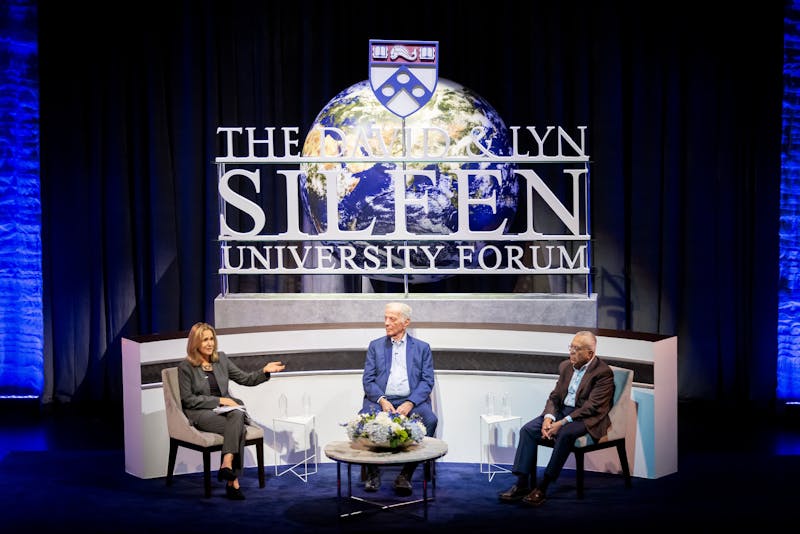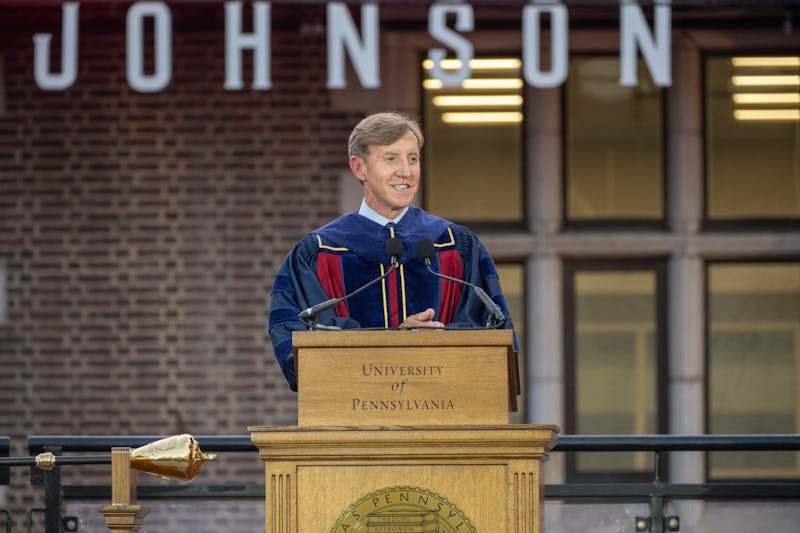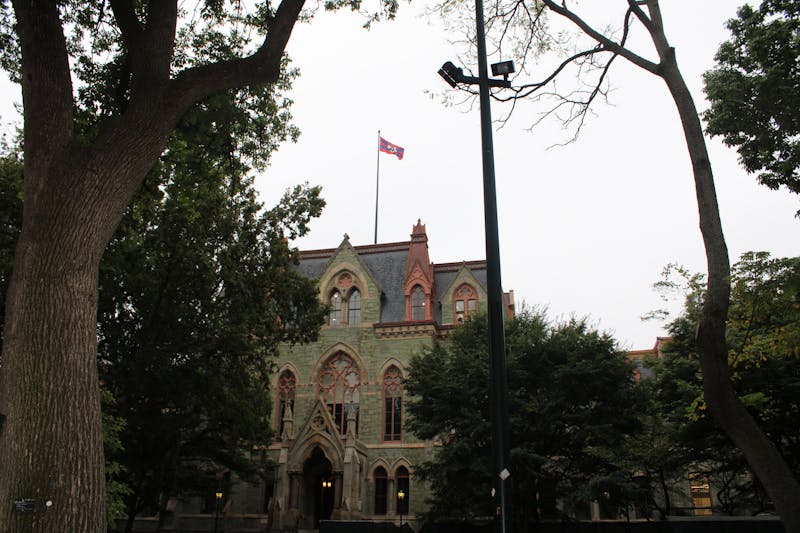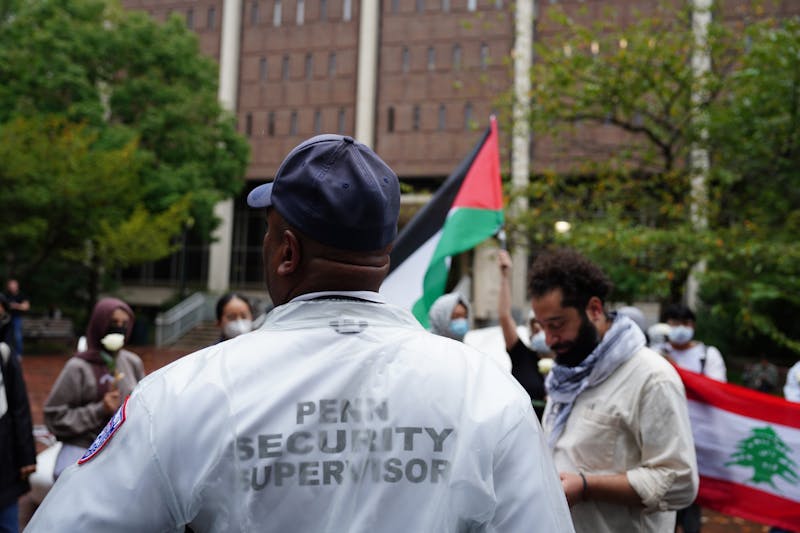
“Universities are precisely the places where people come to learn more about things that are truly important … they’re also places where our own opinions, our own views get challenged so we can rethink and refine and even reject them to get a better view of the world.” This is how Vice Provost for Global Initiatives Ezekiel Emanuel introduced the David and Lyn Silfen Forum, which took place on Oct. 22 at the Annenberg Center.
The panelists included former Prime Minister of the Palestinian Authority Salam Fayyad and Itamar Rabinovich, former Israeli ambassador to the United States. The event was moderated by NPR diplomatic correspondent and 1989 College graduate Michele Kelemen. Interim Penn President Larry Jameson also spoke to the audience before the discussion.
Before I go any further on the panel itself, let’s take a step back. The University and administration responsible for putting this program together deserve to be commended. Choosing to host a panel with two former political leaders, whose respective entities are in direct opposition, is no small risk. The event needed to be heavily secured and every word of the introduction was scripted carefully. Especially for a University that has been a hotbed of contrasting opinions on this topic for some time, the Silfen Forum was an impressive step forward to refining the way the community approaches this pressing issue.
Towards the end of his introduction, Emanuel spoke of his interactions with Penn students just after Oct. 7, 2023, the day of the Hamas attacks on numerous kibbutzim in southern Israel as well as the Supernova Music Festival, resulting in the death of approximately 1,200 Israelis. “Some had strident opinions,” he said, “but most students agreed with one who said, ‘I’m not Muslim, I’m not Jewish. I don’t come from the Middle East, and I feel I need more to understand the situation.’” There is also no doubt that this year’s Silfen Forum succeeded in doing just that. Emanuel’s key takeaway, however, came directly before the panel’s moderated discussion on the conflict in the Middle East: Universities have a unique platform to exhibit civil discourse and disagreement.
The Silfen Forum definitely presented exemplary civil discourse, but it might have been a bit too civil.
As I reflect on the remarks made by both panelists, I find myself continuously looking back to Emanuel’s remarks on sharing differences of opinion. But differences of opinion were nowhere to be found at the Annenberg Center that afternoon. On facets as general as the prospects of a two-state solution, to as specific as where and when Israel should strike Iran, the two panelists seemed to agree on just about everything.
I do not see a problem with two renowned diplomats agreeing on a highly controversial topic, but is that really what Penn needed to hear right now?
What Penn needed to hear was constructive and worthwhile disagreement. The Silfen Forum is a distinctively opportune time for the community to see how to exhibit opinions in a way that is productive and pragmatic. With both Fayyad and Rabinovich being former diplomats and current Brookings Distinguished Fellows, not to mention advocates for two completely separate political entities with extremely separate values, it is more than fair to say the two could have shown a bit more contrast in their stances.
The current conflict in the Middle East is complex, full of nuances, and more often than not, invigorating, but for Fayyad and Rabinovich, it is at the core of their professional lives. They are arguably two of the world’s most suited people to debate and present ideas on this topic, and they traveled to Philadelphia to do just that. So why not set them up for it? It isn’t clear to me that enough went on behind the scenes, with the panelists ahead of time, to have them engage in this way.
Even 13 months removed from Hamas’ attack on Israel, it is not an occasional sight to see pro-Palestinian protesters on the streets surrounding campus. They are not going to go away, and it is clear that many of my colleagues at The Daily Pennsylvanian feel the same. I do think we can all agree that there is a better way to handle business, especially at an institution of this stature.
The forum was supposed to be the moment for Penn to witness a textbook demonstration on civil discourse, a concept that many on campus blatantly struggled with last year when members of the community turned to pitch tents as a way of portraying their beliefs: a way of expressing opinion that is completely unproductive and not pragmatic.
So, what should be done to rectify the situation? I am not entirely sure. I am, however, positive that our community is still not equipped to have insightful and beneficial discussions that involve differences of opinion. We, as a community, continue to lack adequate resources in order to disagree in an auspicious manner.
Nevertheless, I see a clear bottom line: The Silfen Forum is an indelible resource and opportunity to exhibit practical contention — that, simply, is not what happened.
BRIAN BARTH is a College first year from New York. His email is bbarth@sas.upenn.edu.
The Daily Pennsylvanian is an independent, student-run newspaper. Please consider making a donation to support the coverage that shapes the University. Your generosity ensures a future of strong journalism at Penn.
Donate











